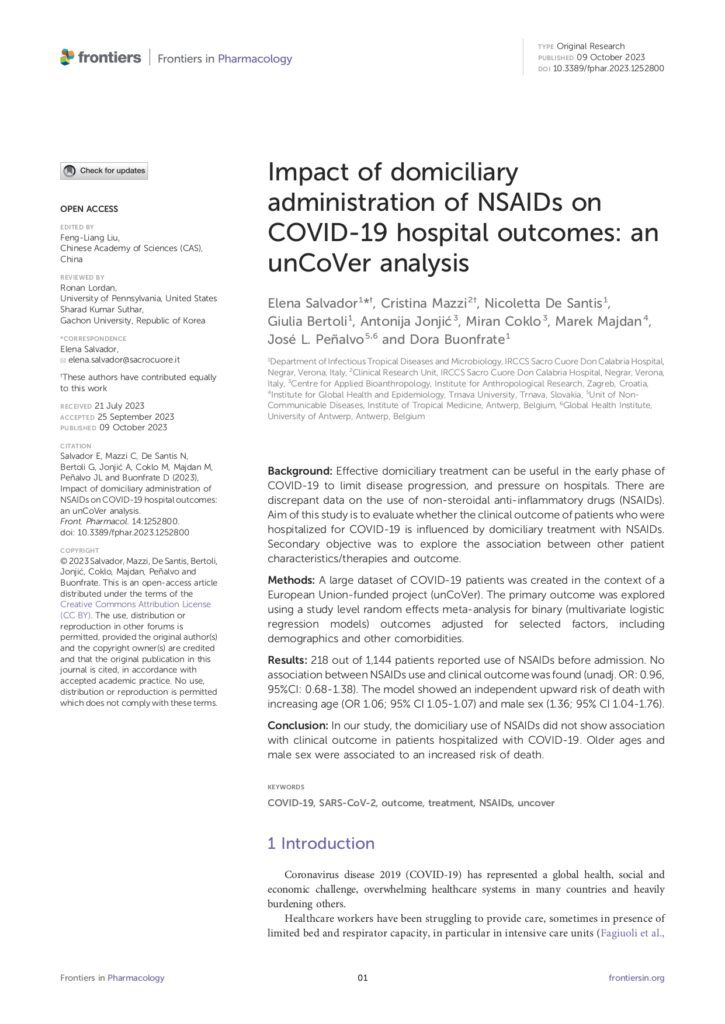Publication links
Abstract
Background
Effective domiciliary treatment can be useful in the early phase of COVID-19 to limit disease progression, and pressure on hospitals. There are discrepant data on the use of non-steroidal anti-inflammatory drugs (NSAIDs). Aim of this study is to evaluate whether the clinical outcome of patients who were hospitalized for COVID-19 is influenced by domiciliary treatment with NSAIDs. Secondary objective was to explore the association between other patient characteristics/therapies and outcome. Methods: A large dataset of COVID-19 patients was created in the context of a European Union-funded project (unCoVer). The primary outcome was explored using a study level random effects meta-analysis for binary (multivariate logistic regression models) outcomes adjusted for selected factors, including demographics and other comorbidities.
Results
218 out of 1,144 patients reported use of NSAIDs before admission. No association between NSAIDs use and clinical outcome was found (unadj. OR: 0.96, 95%CI: 0.68-1.38). The model showed an independent upward risk of death with increasing age (OR 1.06; 95% CI 1.05-1.07) and male sex (1.36; 95% CI 1.04-1.76).
Conclusion
In our study, the domiciliary use of NSAIDs did not show association with clinical outcome in patients hospitalized with COVID-19. Older ages and male sex were associated to an increased risk of death.
Keywords
Citation
Salvador E, Mazzi C, De Santis N, Bertoli G, Jonjić A, Coklo M, Majdan M, Peñalvo JL, Buonfrate D. Impact of domiciliary administration of NSAIDs on COVID-19 hospital outcomes: an unCoVer analysis. Front Pharmacol. 2023 Oct 9;14:1252800. doi: 10.3389/fphar.2023.1252800. PMID: 37876733; PMCID: PMC10591104.

